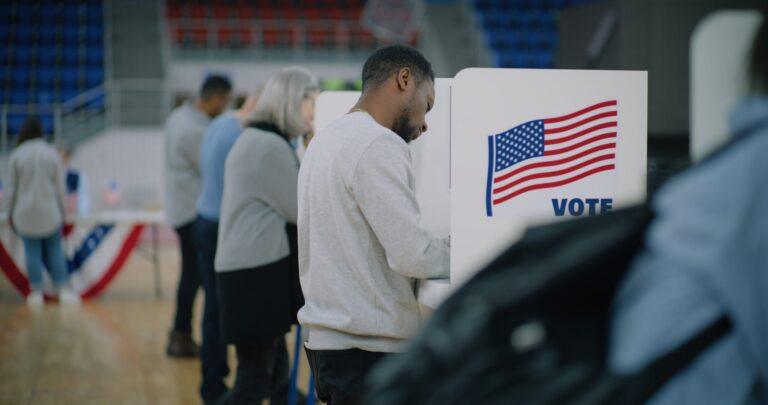
Houston Ethnic Media held a zoom call on November 12, 2024, with three invested Houstonians: Kristin Etter, Dr. Carla Brailey and Dr. Jeronimo Cortina. They delved into key concerns such as immigration, reproductive healthcare, and how the ethnic vote unfolded. Valuable insights were shared on their perspectives and the lessons we will explore moving into the upcoming year.
First Speaker: Kristin Etter – Director of Policy and Legal Services at the Texas Immigration Law Council
Q: What stands out for you about the election results overall and what is most concerning?
Etter: Yes. Well, I think anybody that was following the campaign closely will not be surprised that the most concerning aspect of the election and what the future administration is likely to begin to enact in January is the mass deportation campaign that they’ve been talking about. So that’s clearly a concern to people in the immigration space. both in Texas as well as nationally. Because it threatens immigrant communities across our country, not just people who are undocumented, but people who are in mixed status families. In addition to US citizens that are likely, if history is any indicator, going to also be swept up in the mass deportation campaign.
Q: How do they know or how will they know who to detain?
Etter: Well, I think we can imagine that, of course, we’re going to see racial profiling. We will see a lot of, we anticipate a lot of work force worksite raids. We anticipate targeted enforcement in areas where immigrants are presumed to either be living, going to school, accessing social services type situation that we saw decades ago under the Eisenhower administration, but yeah, I mean, I just think it’s going to be checkpoints, raids. You know, lots of people being stopped and questioned about their citizenship status. And again, I think Texas is going to be where it will start. So, I think you’re going to see a lot of people leave Texas.. a lot of people not wanting to come to Texas. And given the fact that Texas has an economy that is very dependent on immigrant labor, I think we can all anticipate feeling the impacts quite soon on what that’s going to look like for people that want to have affordable food and homes and other types of industries where we have always not only relied on immigrant labor but have thrived because of immigrant labor. So, I can absolutely envision a situation where the economy in Texas begins to tank.
Second Speaker: Carla Brailey – Rice University’s Baker Institute for Public Policy Fellow & Associate Professor of Sociology at Texas Southern University
Q: How do you feel this will impact women and reproductive health?
Dr. Brailey: Well, we know that gender was on the ballot, and it’s clearly a battle that we’ve been fighting for a very long time. 2024 was not really different from 2016 in that Okay. women’s rights prove not to be the winning path.
Women’s votes, particularly among black and Latino women, continues to be a powerful driver for Democrat success..And we know that, you know, particularly black women voted almost well over 90% supported Kamala Harris, solidifying that their role is very essential to the Democratic base. And, so we know if they are essential, we know that this fight for reproductive justice, this fight for rights just in general for women, it’s really not going to go away, but I do think that there will have to really do some more strategic focusing on how do they do that while also engaging voters on different issues, Latino women also played a pivotal role, although their support was slightly increased for Trump, emphasizing the importance of addressing, as I said, economic and social concerns.
But we see that white women’s voting behavior exhibited consistency with over 50%, and I know these are still preliminary numbers, but I’ve seen something as high as 53% for Trump, up from 47% in 2016. Their support is especially strong among white women without college degrees, indicating an outgoing alignment with Republican values on issues such as economic policy and social conservatism…. And these trends underscore the need for future campaigns to engage women voters do policy approaches. And I think through how they’re even educated, K through 12, so that they’ll have a better idea in moving forward on what they want for their lives to be able to push for as voters as well.
Q: What are the important takeaways about the black vote?
Well, I think the important takeaways are primarily that black voters are still primarily voting Democratic, offering the cornerstone of Democratic support.
We particularly saw that black women voted for Kamala Harris with over 90%. This is still preliminary I’ve seen in Some cases that it’s even over that. even surpassed, and I think I saw one outcome of 92% for Kamala, which was, I think, 2% up from Joe Biden.We know that their commitment to democracy was shown and not only in this election, but in the past that they’re not wavering in spite of some of the other issues that primarily looks like we’re deciding areas on this election like inflation and And even, you know, climate, you know, some other things that for them it has been around the notion of democracy.
We know that we had more black men that tended to favor Trump in this election. I think it was probably up to Maybe approximately 20%, which was an increase from the 13% in 2020… And we know that black males supported Trump at a higher level, those who were in terms of age. When age was controlled. And these patterns that we see still show that You know, hands down, black voters are primarily still voting based on their commitment to democratic principals and I don’t think that we’re going to see that even waiver in the upcoming years. I do think that considering this turnout and considering that level of activity and engagement, that we’ll see some more, I would say, call out, some more ask for a ground game and increasing the black vote as well.
Third Speaker: Dr. Jeronimo Cortina – Associate Professor in the Department of Political Science at the University of Houston
Q: What impact or what are the important takeaways about the Latino vote?
Dr. Cortina: Well, I mean, there is no, despite what the media is saying, that there has been a huge uptake into especially Latinos voting for the Republican Party. We have seen these many, many, many, many, many times. We saw it in 2004 with President W. Bush being elected around 45 percent of the Latino vote we have seen in other races. We have seen it in Texas, we have seen in New York with Back in the early 2000s with the election of Governor George Pataki. So it just illustrates that the Latino vote is not a homolytic voting bloc.
I wouldn’t say it’s an ideological realignment, as people are suggesting in some media outlets. If it’s an ideological realignment, but we would have to wait a couple of years, at least five years until the next presidential election.
We start with Bush, Bush won the Latino vote, and four years later, Latinos were voting for President Obama. And in this year, they voted for Trump. And it’s just a byproduct of how the Trump campaign was able to get to the voters, whether the Trump campaign and his administration are going to deliver, that’s a completely different question.
You cannot compare a message talking about, for example, inflation, saying I’m going to end up inflation the first days in office. Obviously, we know that that is not possible, but voters do not care. It’s a matter of voters being fed up with inflation and blaming someone my blaming, for example, the Biden administration, even though the Biden administration doesn’t have the power to print money or anything like that or to set interest rates as a part of the Fed’s job. you know, it’s a matter of how the message was delivered. You cannot compare, I’m going to end inflation.
And you’re going to be able to buy the cereal that your kids want and put gas on your car. We’re going to create an opportunity economy that doesn’t translate directly to the volumes. So that is a significant point that I think it’s very important to highlight.
Q: How will Latinos who are native born react to those mass deportations?
Dr. Cortina: Well, I mean, that’s another, I think, important misconception sometimes and it’s being Latino doesn’t mean that you are for undocumented migration. Since the Bracero program, since the 1940s, especially when you look at the messenger American community, the majority or predominantly Latino group back then. A lot of people were against undocumented migrants. A lot of people were supportive of these deportations one way or the other. And it has to do with a very complex system in terms of political incorporation or political assimilation on the one hand.
And also, in terms of real job competition, right? There are different times, different circumstances, different contexts. The economy right now, especially service economy, agriculture is supported 100% by migrant labor… it’s going to be very different because if you were not those mass deportations… you’re going to be hurting, you know, once again, voters pocket right in terms of grocery prices and so on and so forth.
But in terms of the Latino community, I think that it’s not a blank check saying I’m for deportation or against deportation. So, you’re going to have a mixed bag. And it depends basically who you talk to.
FINAL THOUGHTS FROM ETTER & DR. BRAILY
Etter: Yes, so it is, again, mass deportations threaten not just immigrants and their families and immigrant communities, but threaten all of us because they will destroy our communities. They will destroy our economies and we will be left in a situation that will have us regretting that mass deportation campaign that so many people voted for. So again, I think it’s going to take a situation, unfortunately, where people are going to be impacted negatively and once that happens, I think that there’s going to be a real push for comprehensive immigration reform, which is something we’ve needed very badly. And it’s unfortunate that we’re going to have to suffer the consequences, all of us of a very misguided mass deportation campaign.
Dr. Brailey: This is one election. We must remain hopeful. We must work together as a collective to continue to mobilize and continue to do what we can even within our own cultural dynamics to ensure that we are educated and informed on next steps and what we can do to continue to engage one another and that we just have to be consistent and believing in social justice to move, move our nation forward to push it towards democracy so that all people can have a chance and experience an American dream.
CONCLUSION:
This discussion highlighted the recent election results and their potential implications both locally and nationally. It also touched on the influence of the ethnic and women’s vote, while exploring critical issues such as women’s rights and immigration policy, and also addressing the challenges and opportunities that lie ahead for our communities. -Kim Floyd







